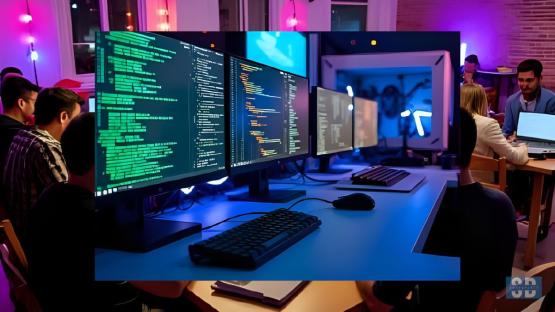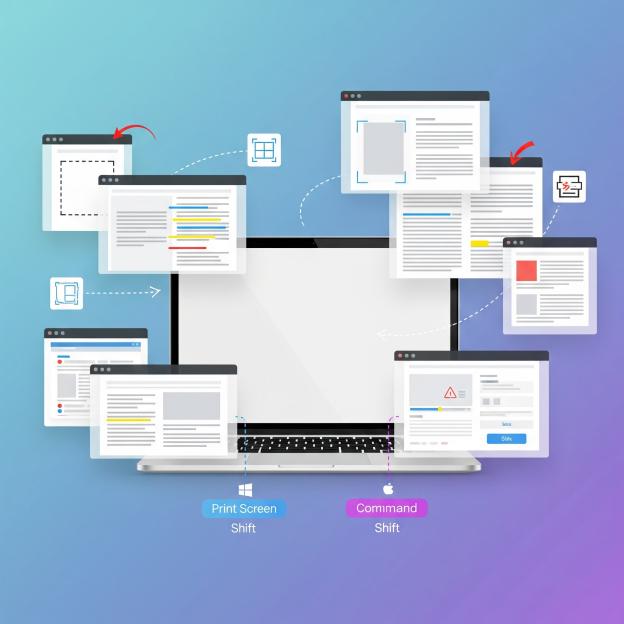Picture this: You’re sitting at your computer, craving that mobile game experience, but your phone’s battery is dead. Or maybe you’re a developer who needs to test apps across different Android versions without buying multiple devices.
Perhaps you simply want to enjoy Android games on a bigger screen with better controls. This is where Android emulators transform your digital experience, opening doors to a world where your computer becomes a gateway to the entire Android ecosystem.
The gaming revolution on mobile devices has created experiences so compelling that millions of users worldwide are seeking ways to bring these adventures to their desktop and laptop computers. Android emulators have evolved from basic development tools into sophisticated platforms that deliver console-quality gaming experiences, complete productivity solutions, and seamless app integration across devices.
What Are Android Emulators and Why Do You Need Them?
Android emulators are software applications that create a virtual Android environment on your Windows, Mac, or Linux computer. Think of them as translators that help your computer understand and run Android applications as if it were an actual Android device.
These powerful tools serve multiple purposes beyond just gaming. Content creators use them for recording mobile app tutorials, developers test applications across different Android versions, and productivity enthusiasts run Android-exclusive apps on their computers. For US users, emulators provide access to region-specific apps and games while offering the comfort of keyboard and mouse controls.
The emulator market has exploded in recent years, with gaming-focused solutions leading the charge. Major companies like BlueStacks, NoxPlayer, and LDPlayer have invested millions in creating smooth, lag-free experiences that rival native Android devices. These platforms now support features like multi-instance gaming, keyboard mapping, and even controller integration.
Top Android Emulators for Gaming Excellence
BlueStacks 5: The Gaming Champion
BlueStacks 5 stands as the undisputed king of Android gaming emulators, boasting over 500 million downloads worldwide. This powerhouse emulator specializes in delivering exceptional gaming performance while maintaining compatibility with virtually every Android game available.
Key Features:
- Fastest boot times in the industry (under 20 seconds)
- Advanced keyboard mapping with smart controls
- Multi-instance support for running multiple games simultaneously
- Built-in game center with curated game recommendations
- Eco Mode for reduced resource consumption
- Screen recording and streaming capabilities
Performance Benchmarks: BlueStacks 5 uses up to 50% less RAM compared to its predecessor while delivering 15% faster performance. The emulator supports both DirectX and OpenGL rendering, automatically selecting the best option for your graphics card. For US gamers, this means smoother gameplay in popular titles like PUBG Mobile, Call of Duty Mobile, and Genshin Impact.
System Requirements:
- Windows 7 or higher / macOS Sierra or later
- 4GB RAM minimum (8GB recommended)
- 5GB free disk space
- Hardware virtualization enabled
Best For: Casual and hardcore mobile gamers who want the ultimate gaming experience with minimal setup hassle.
NoxPlayer: The Versatile Performer
NoxPlayer has carved its niche as the go-to emulator for users who demand flexibility and customization. This feature-rich platform appeals to both gamers and productivity users with its comprehensive toolkit and user-friendly interface.
Key Features:
- Full root access for advanced customization
- Comprehensive keyboard mapping editor
- Script recording and macro support
- Multiple Android versions (Android 4, 5, 7, 9)
- Controller support with haptic feedback
- Real-time translation features
Performance Highlights: NoxPlayer excels in resource management, offering granular control over CPU and RAM allocation. The emulator supports resolutions up to 2K and provides dedicated graphics acceleration for demanding games. Its multi-drive feature allows users to switch between different Android versions instantly.
Unique Advantages:
- Superior file sharing between host computer and emulator
- Advanced networking options for developers
- Comprehensive backup and restore functionality
- Built-in screen capture and video recording tools
Best For: Power users, developers, and gamers who want complete control over their Android environment.
LDPlayer: The Lightweight Champion
LDPlayer has gained tremendous popularity among US users for its exceptional balance of performance and resource efficiency. This emulator focuses on delivering smooth gaming experiences without overwhelming your system resources.
Key Features:
- Lightweight architecture with minimal system impact
- Advanced keyboard mapping with gesture support
- Multi-instance synchronization
- Built-in APK installer and Google Play integration
- Customizable resolution and DPI settings
- One-click optimization for popular games
Gaming Optimization: LDPlayer provides game-specific optimization profiles that automatically adjust settings for optimal performance. The emulator supports high frame rates and includes anti-aliasing options for crisp visual quality. Its smart resource allocation ensures stable performance even during extended gaming sessions.
Memory Management: The emulator uses intelligent caching to reduce loading times and includes a built-in cleaner to maintain optimal performance. LDPlayer’s architecture is specifically designed to handle resource-intensive games while maintaining system stability.
Best For: Users with modest system specifications who want reliable gaming performance without system slowdowns.
Professional and Development-Focused Emulators
Android Studio Emulator: The Developer’s Choice
Google’s official Android Studio emulator remains the gold standard for app development and testing. This professional-grade tool provides the most accurate Android environment available, making it essential for serious development work.
Technical Capabilities:
- Pixel-perfect device simulation
- Hardware sensor simulation (GPS, accelerometer, camera)
- Network condition simulation
- Cloud-based testing integration
- Advanced debugging tools
- API level testing from Android 4.0 to latest versions
Development Features: The emulator includes comprehensive testing tools like network throttling, battery level simulation, and location spoofing. Developers can test apps across different screen sizes, resolutions, and Android versions simultaneously. The extended controls panel provides access to virtually every hardware feature found in real Android devices.
Performance Considerations: While not optimized for gaming, the Android Studio emulator provides unmatched accuracy for development purposes. The latest versions include hardware acceleration support and improved startup times, making it more practical for everyday development tasks.
Best For: Professional developers, QA testers, and anyone requiring precise Android environment simulation.
Genymotion: The Enterprise Solution
Genymotion caters to enterprise developers and teams requiring robust testing capabilities across multiple Android configurations. This cloud-based solution offers both desktop and cloud instances for comprehensive testing scenarios.
Enterprise Features:
- Cloud-based device testing
- Continuous integration support
- Team collaboration tools
- Advanced automation capabilities
- Custom device configuration
- Enterprise security compliance
Testing Capabilities: Genymotion provides access to over 3,000 Android device configurations, including various manufacturers like Samsung, Google, and OnePlus. The platform supports automated testing frameworks and includes advanced debugging tools for complex applications.
Cloud Integration: The cloud-based option allows teams to run tests across multiple devices simultaneously without local hardware requirements. This approach significantly reduces testing time and provides access to devices that might be expensive or difficult to obtain physically.
Best For: Enterprise development teams, automated testing environments, and organizations requiring scalable testing solutions.
Gaming-Specific Features and Optimizations
Advanced Keyboard Mapping
Modern Android emulators have revolutionized mobile gaming control schemes through sophisticated keyboard mapping systems. These tools transform touch-based controls into precise keyboard and mouse inputs, providing competitive advantages in fast-paced games.
Mapping Technologies:
- Visual drag-and-drop control placement
- Gesture simulation for complex movements
- Macro recording for repetitive actions
- Multi-key combinations for advanced strategies
- Context-sensitive control switching
Game-Specific Optimizations: Popular emulators now include pre-configured control schemes for trending games. These optimizations consider game mechanics, ensuring that keyboard layouts provide intuitive and efficient control schemes. For shooting games, this might include dedicated aim assist features, while strategy games benefit from hotkey combinations for quick unit selection.
Customization Options: Advanced users can create and share custom control schemes, building communities around optimal gaming configurations. These schemes often include sensitivity adjustments, dead zone settings, and response curve modifications that cater to different playing styles and preferences.
Multi-Instance Gaming
Multi-instance functionality has become a game-changer for players who want to maximize their gaming efficiency or manage multiple accounts simultaneously. This feature allows running several Android instances on the same computer, each operating independently.
Use Cases:
- Managing multiple game accounts
- Resource farming in strategy games
- Testing different game strategies simultaneously
- Running productivity apps alongside games
- Streaming games while managing chat applications
Resource Management: Sophisticated emulators provide intelligent resource allocation across instances, ensuring stable performance even when running multiple demanding applications. Users can assign specific CPU cores and RAM amounts to each instance, optimizing performance based on their priorities.
Synchronization Features: Advanced multi-instance systems include synchronization tools that can replicate actions across multiple instances simultaneously. This feature proves invaluable for games requiring repetitive tasks or when managing multiple similar accounts.
Performance Optimization and System Requirements
Hardware Considerations
Achieving optimal emulator performance requires understanding the relationship between your computer’s hardware and emulator demands. Different emulators have varying hardware requirements and optimization strategies.
CPU Requirements: Modern Android emulators benefit significantly from multi-core processors with high single-thread performance. Intel processors with VT-x support or AMD processors with AMD-V technology provide the best emulation performance. For gaming, processors with at least 6 cores and base clock speeds above 3.0 GHz deliver smooth experiences.
Memory Specifications: RAM requirements vary based on intended use. Basic app testing requires 4GB minimum, while gaming emulation performs best with 8-16GB. High-end gaming with multiple instances may require 32GB for optimal performance. Fast DDR4 memory with speeds above 3000 MHz provides noticeable improvements in loading times and overall responsiveness.
Graphics Acceleration: Modern emulators leverage both CPU and GPU resources. Dedicated graphics cards from NVIDIA (GTX 1060 or better) or AMD (RX 580 or better) provide significant performance improvements for graphically demanding games. However, integrated graphics solutions like Intel Iris Xe can handle basic gaming and productivity tasks adequately.
Storage Considerations: SSD storage dramatically improves emulator startup times and application loading speeds. NVMe SSDs provide the best performance, reducing game loading times by up to 70% compared to traditional hard drives. Allocating at least 50GB of free space ensures smooth operation and room for game installations.
Software Optimization Techniques
Virtualization Technology: Enabling hardware virtualization (VT-x for Intel, AMD-V for AMD) in BIOS settings provides fundamental performance improvements. This technology allows emulators to access hardware resources more efficiently, resulting in better frame rates and reduced system overhead.
Emulator Settings Optimization: Each emulator offers numerous settings that can significantly impact performance:
- CPU core allocation (typically 2-4 cores for optimal balance)
- RAM allocation (2-4GB for gaming, 1-2GB for basic use)
- Graphics rendering mode (DirectX, OpenGL, or Vulkan)
- Resolution settings (1080p provides good balance of quality and performance)
- Frame rate limits (30fps for casual games, 60fps for competitive gaming)
System-Level Optimizations: Windows users can improve emulator performance through several system-level adjustments:
- Disabling Windows Game Mode for some emulators
- Setting emulator process priority to “High”; in Task Manager
- Temporarily disabling antivirus real-time scanning for emulator directories
- Ensuring adequate virtual memory settings
- Closing unnecessary background applications
Security and Privacy Considerations
Safe Emulator Practices
Using Android emulators safely requires awareness of potential security risks and implementing appropriate protective measures. While reputable emulators are generally safe, users should follow best practices to protect their personal information and devices.
Official Source Downloads: Always download emulators from official websites or verified app stores. Third-party download sites may bundle emulators with malware or modified versions that compromise security. Verify download authenticity through official digital signatures when available.
Permission Management: Android emulators request various system permissions during installation and operation. Review these permissions carefully and only grant access to features you actually need. Many emulators request broader permissions than necessary for their core functionality.
Network Security: Emulators create network connections for Google Play services, app downloads, and game connectivity. Use reputable antivirus software with real-time protection and consider running emulators behind firewalls that monitor outbound connections.
Data Protection: Be cautious when logging into personal accounts through emulators. Consider using dedicated accounts for emulator gaming rather than your primary Google or social media accounts. This practice limits potential exposure if security breaches occur.
Privacy Best Practices
Account Separation: Create separate Google accounts specifically for emulator use. This separation protects your primary account and associated services while still providing access to the Google Play Store and cloud save features.
Virtual Private Networks: Consider using VPN services when accessing region-restricted content or when privacy is a significant concern. Some emulators include built-in VPN functionality, though standalone VPN solutions often provide better security and privacy protections.
Regular Updates: Keep emulators updated to the latest versions to ensure security patches and bug fixes are applied promptly. Enable automatic updates when available, but monitor update notes for any concerning changes in permissions or functionality.
Troubleshooting Common Issues
Installation and Setup Problems
Virtualization Technology Issues: Many users encounter problems related to disabled virtualization technology in their computer’s BIOS settings. Symptoms include slow emulator performance, installation failures, or error messages about hardware acceleration.
Solution Steps:
- Restart computer and enter BIOS setup (usually F2, F12, or Delete key during startup)
- Navigate to Advanced or CPU Configuration settings
- Enable Intel VT-x or AMD-V technology
- Enable Intel VT-d or AMD IOMMU if available
- Save settings and restart computer
Conflicting Software: Hyper-V, Windows Subsystem for Linux, and some antivirus programs can conflict with Android emulators. These conflicts often manifest as performance issues or inability to start emulator instances.
Resolution Approaches:
- Disable Hyper-V through Windows Features
- Configure antivirus exclusions for emulator directories
- Temporarily disable real-time protection during installation
- Close unnecessary background applications before starting emulators
Performance and Compatibility Issues
Graphics Rendering Problems: Graphics-related issues often appear as black screens, visual artifacts, or extremely poor performance in games. These problems typically stem from graphics driver issues or incorrect rendering settings.
Graphics Troubleshooting:
- Update graphics drivers to the latest versions
- Try different rendering modes (DirectX, OpenGL, Vulkan)
- Adjust emulator graphics settings to lower levels
- Disable hardware acceleration if problems persist
- Check for Windows updates that might affect graphics performance
Game-Specific Compatibility: Some games may not work properly with certain emulators due to anti-cheat systems, specific hardware requirements, or regional restrictions.
Compatibility Solutions:
- Try different emulator versions or brands
- Check emulator compatibility lists for specific games
- Adjust emulator settings to mimic different Android devices
- Use VPN services for region-restricted content
- Contact emulator support for game-specific issues
Advanced Features and Customization
Automation and Scripting
Modern Android emulators include sophisticated automation tools that allow users to create complex scripts for repetitive tasks. These features prove invaluable for gaming efficiency and productivity applications.
Macro Recording: Advanced emulators support macro recording that captures user interactions and replays them automatically. These macros can include touch gestures, timing delays, and conditional logic for complex automation scenarios.
Script Customization: Power users can create custom scripts using programming languages like Python or JavaScript. These scripts can interact with emulator APIs to perform complex tasks like automatic resource collection, event participation, or account management across multiple instances.
Scheduling Features: Some emulators include scheduling systems that can automatically execute scripts at specific times or intervals. This functionality enables users to maintain game progress even when away from their computers.
Integration and Ecosystem Features
Cloud Synchronization: Leading emulators now offer cloud synchronization features that allow users to access their configurations and game progress across multiple devices. This synchronization includes control schemes, emulator settings, and in some cases, game save data.
Streaming Integration: Built-in streaming tools enable content creators to broadcast their mobile gaming sessions directly to platforms like Twitch, YouTube, or Facebook Gaming. These tools often include overlay features, chat integration, and audience interaction capabilities.
Developer Integration: Professional emulators provide APIs and integration tools for developers working on mobile applications. These features include automated testing capabilities, debugging tools, and deployment automation for development workflows.
Future of Android Emulation
Emerging Technologies
The Android emulation landscape continues evolving rapidly, with new technologies promising even better performance and functionality. Cloud gaming services are beginning to integrate emulation technologies, potentially eliminating local hardware requirements entirely.
Hardware Acceleration Advances: Next-generation processors from Intel and AMD include specialized instructions for virtualization and emulation tasks. These improvements will likely reduce the performance overhead of emulation while improving compatibility with demanding applications.
AI-Powered Optimization: Machine learning technologies are being integrated into emulators to provide intelligent performance optimization. These systems can automatically adjust settings based on running applications, system resources, and user behavior patterns.
Cross-Platform Evolution: Future emulators may provide seamless integration between mobile and desktop experiences, allowing users to start tasks on their phones and continue on their computers without interruption.
Market Trends
Gaming Industry Integration: Major gaming companies are beginning to develop games specifically optimized for emulator platforms. This trend suggests that the distinction between mobile and PC gaming may continue to blur, creating new opportunities for hybrid gaming experiences.
Enterprise Adoption: Businesses are increasingly adopting Android emulation for employee productivity, especially for companies that rely heavily on mobile applications for their operations. This trend is driving development of enterprise-focused emulation solutions with enhanced security and management features.
Education and Training: Educational institutions are using Android emulators for teaching mobile development, digital literacy, and technology training. This adoption is creating demand for specialized educational versions of emulation software.
Conclusion and Recommendations
Android emulators have transformed from simple development tools into sophisticated platforms that bridge the gap between mobile and desktop computing. Whether you’re a casual gamer looking to enjoy mobile titles on a bigger screen, a developer testing applications across different Android versions, or a professional seeking productivity solutions, there’s an emulator designed to meet your specific needs.
For US users in 2025, the choice of emulator depends heavily on intended use cases. BlueStacks 5 remains the top choice for pure gaming performance, offering unmatched optimization for popular mobile games and the smoothest user experience. NoxPlayer appeals to power users who want complete control over their Android environment, while LDPlayer provides an excellent balance of performance and resource efficiency for users with modest system specifications.
Professional developers should continue relying on Android Studio’s official emulator for accurate testing environments, while enterprise teams may benefit from Genymotion’s cloud-based testing capabilities. Regardless of your choice, remember that optimal emulator performance requires proper hardware setup, security awareness, and regular maintenance.
The future of Android emulation looks promising, with emerging technologies like AI optimization and cloud integration set to enhance the user experience further. As the line between mobile and desktop computing continues to blur, Android emulators will likely play an increasingly important role in how we interact with digital content and applications.
Final Recommendations:
- Start with BlueStacks 5 for gaming-focused use
- Consider NoxPlayer for advanced customization needs
- Try LDPlayer if you have limited system resources
- Use official Android Studio emulator for development work
- Always download from official sources and maintain good security practices
- Regularly update both your emulator and system drivers for optimal performance
The world of Android emulation offers endless possibilities for enhancing your digital experience. Choose the right emulator for your needs, optimize your system properly, and enjoy the best of mobile computing on your desktop or laptop computer.







